The article about Pediatric Associates in CA has a nugget with a potentially outsized impact: the implication that VFC vaccines…
HIT Vendor Executives on Helping Doctors Qualify for Meaningful Use
We asked several HIT vendor executives the following question:
A recent survey shows that 45% of doctors expect their vendors to help them qualify for Meaningful Use money. Do you think that’s reasonable? What help to you think they need and what do you plan to offer?
Eric Morgan, President & CEO, AdvancedMD
This is a very important question about which vendors and physicians should be clear.
AdvancedMD has been successfully helping smaller physician offices to automate and optimize their operations for years through our cloud (SaaS) based applications. The requirements of this market segment are particularly unique in part due to the fact that most offices do not have substantial resources, so they rely upon their software provider to be a true partner.
Certainly it is the vendor’s responsibility to provide an ONC Meaningful Use certified product that is easy to use. In addition to solid implementation assistance and ongoing support, it is necessary to provide the reporting tools that doctors can use to comply via the attestation process. We believe many practices will need help navigating the process of qualifying for stimulus funds and this is something we expect to help guide clients through.
EHR implementations, as with all important technology deployments, require that the clients (providers) embrace the changes required to be successful and fully leverage the capabilities of the technology. This partnership between the vendor and client will provide a basis for overcoming the inevitable challenges that may arise and will allow the doctors to achieve their goals.
Dan Michelson, Chief Marketing Officer, Allscripts
We help our clients qualify for ARRA incentives with a simple, straightforward path to Meaningful Use:
- Understand the Stimulus: To get started, we encourage providers to visit Stimulus Central, an easy-to-understand guide to Meaningful Use (ROI calculator, FAQs, etc).
- Assess Gaps: We then analyze gaps to ensure efficient planning and resource allocation.
- Design New Workflows: Often, changes are needed in workflow and we provide services to redesign clinical and operational workflows.
- Implementing a Stimulus-Ready EHR: We guarantee our EHRs will be ARRA-certified. For providers that don’t have an EHR today, we provide a no-payments-for-six-months financing option that bridges the gap until Stimulus funding is received.
- Rapid Rollout: We provide accelerated deployment solutions in both the Ambulatory and Acute Care Settings.
- Stage 1 requires 90 consecutive days of EHR use in order to demonstrate compliance. Our built-in reporting tools help providers track and identify changes in behavior needed to ensure they demonstrate Meaningful Use before, during and after those 90 days.
- Report and Claim Incentives: Our ARRA-certified EHRs provide the clinical quality reporting required as well as additional capabilities that extend the power of our EHRs far beyond Meaningful Use to achieve what we call “Meaningful Value”
Michael Nissenbaum, CEO and President, Aprima Medical Software, Inc.
Keeping with our philosophy of “Hugging the Physician”, Aprima Medical Software will support our entire install base in qualifying for the stimulus dollars. Creating the software to meet the Meaningful Use requirements is only half of the equation. Empowering our clients to realize the financial benefits, as we have with eRX and PQRI, completes the commitment. The support will come technically and personally.
- Embedded in the PRM 2011 is a Meaningful Use Dashboard, apprising the provider of their status as to compliance.
- The Aprima Learning Management System (online training) is being updated and enhanced to walk the practice and the individual participant through the workflows required to meet Meaningful Use. The system is available 24/7.
- The computer-based training modules embedded in our software are being updated to address the requirements, by task and function, so users will meet Meaningful Use requirements.
- A comprehensive organization of Trainer-On-Call (TOC) will be available as requested, either in a one-to-many, or on a one-on-one basis, as required.
- With many of our larger practices, they have contracted for services on an as-needed basis.
As always, Aprima stands-by to assure the success of our physicians!
Jonathan Bush, Chairman and CEO, athenahealth
You know, we were the guys who actually polled this question through a post we did in Sermo recently. So naturally I’d love to respond to the results.
First, to be exact, the question actually asked, "Which resource will you lean on the most?" and 47% said their vendor, which was the highest response — followed by a stalwart 33% (God bless them) who said they’d go it alone.
To be honest, I’m not surprised fewer than half are going to rely on their vendors. Why should they?! Most vendors sold these doctors expensive software and have long since moved on to the next sale. Sure, they’ll get their EHRs MU certified, but the poor docs are still going to be left to do all the heavy lifting of managing enrollment, making submissions, and tracking payments — just to bank their incentive dollars.
How about we vendors stick our necks out a little further and actually guarantee that if they qualify they will get their check? athenahealth is sort of the loner guy in the room who is doing this through our MU guarantee program. We’ve got skin in the game, sharing the investment with our providers. Others should, too.
The vendor who thinks their job is done by dumping software onto a doctor’s server or just basic Web-hosting is soooo … 2000. In this clinical environment, where doctors are being told to move away from systems they are comfortable with to systems that are foreign — and oh, by the way, might slow them down or lose them money — the vendor has to be working alongside the doctors every day, navigating them through every day, shifting the onus off their shoulders. Because tomorrow this meaningful use thing will be a different-looking beast that requires a different set of rules and the static nature of software can’t keep up.
So you ask — is 47% reasonable? No!! In the perfect world, it’d be a lot higher so the docs could stay focused on patient care. But it’s not surprising. Thirty-three percent in this survey have obviously run the numbers and have unfortunately decided they’d rather go it alone for real than hire a vendor … just to find themselves still going it alone.
Shellee K. Spring, Senior Vice President, Cerner Ambulatory
At Cerner, we deliver solutions, tools, education, and coaching to help you qualify for Meaningful Use funding. Our goal is to simplify the process of achieving Meaningful Use. We walk our clients through an easy scenario to demonstrate how many Meaningful Use requirements are met as a byproduct of their normal clinic activities. Eleven of the core requirements for Stage 1 and four of the menu requirements are part of the natural visit workflow. The remainder of the requirements can be addressed through population management and communications between patients and healthcare entities.
More than 18,000 ambulatory providers are on the path to Meaningful Use with Cerner solutions. Our dashboards allow physicians to view their patient performance and overall clinic success against Meaningful Use, PQRI and Medical Home measures. Standard reports also show how a provider progresses against functional thresholds such as usage of medication and problem lists. Our popular Meaningful Use package includes the EHR, practice management, patient portal, and reporting. Practices can also take advantage of our ASP model with full-service application hosting (ranked #1 by KLAS), training, consulting, and support — all the resources and tools necessary to enable Meaningful Use and more. Check out Cerner Ambulatory.
Girish Kumar Navani, CEO and Co-Founder, eClinicalWorks
eClinicalWorks feels strongly that as an EMR vendor, we should provide innovative tools and the training required for all eligible professionals to achieve Meaningful Use objectives.
We recently announced MAQ dashboards (MU, Adoption, Quality), which will allow providers real-time access to a dashboard for assessing usage based on MU measures and objectives at no extra cost. In addition, we announced eClinicalWorks V9.0, which simplifies patient-provider communication with tools for securely providing visit summaries, education material, and more to patients online with the new Patient Portal – www.100millionpatients.com.
We are committed to providing an array of resources to assist providers use eCW in a meaningful way:
- Webinars on application features required for Meaningful Use
- Meaningful Use RoadShow – interactive educational sessions throughout the country
- User Guides and documentation
- Meaningful Use educational resources at www.eclinicalworks.com and at https://my.eclinicalworks.com
- Remote assessment of the practice’s progress toward MU goals
- On-site evaluation and remediation as needed.
Michael Stearns, MD, CPC, President and Chief Executive Officer, e-MDs, Inc.
It is clearly in the best interest of the vendors to help their providers attain Meaningful Use and subsequent incentive payments. This is an unprecedented opportunity for providers to supplement their income while demonstrating the value of EHRs in their offices. e-MDs has gone to significant efforts to enhance the MU related features of our current EHR. We feel that the MU Stage I criteria are relatively straightforward for users of our ONC-certified EHR.
To supplement this process, we are working with HIT Regional Extension Centers (RECs) to create local outreach, education, HIT workforce development programs, and training programs that will assist with REC enrollments and implementations. e-MDs is also providing free Webinars, MU-specific videos, MU-specific certification for trainers and providers, expanded phone support, and MU-specific online and on-site training, and we are hiring local trainers throughout the country. We are also providing, supporting, and co-hosting an expanding number of regional user group meetings focused on MU and optimal use of technology in provider practices.
A growing number of our users would like to be amongst the first providers to receive the ARRA EHR incentive payments in the country and we find this encouraging. 2011 is going to be an exciting year for our company and for the HIT industry in general. We feel MU will serve as a catalyst that will stimulate providers to use HIT in ways that will lead to even greater care benefits for their patients.
Vishal Wanchoo, President and Chief Executive Officer, GE Healthcare IT
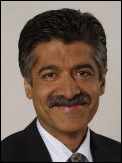
At GE, we were surprised that number wasn’t higher. We believe physicians and hospitals should expect collaboration from their EMR vendor in preparation for demonstrating Meaningful Use. We do this because we believe the ARRA incentives are about improving patient care and the effectiveness and efficiency of health care professionals and organizations. The entire GE company is committed helping our customers drive business performance while delivering clinical excellence.
We know customers are, primarily, asking for three things.
1) “Help me ensure that your company and your product will be ready.”
We’ve got this covered for our EMR customers. We are proud that we were among the first to achieve HHS certification, with three of our products now certified and more soon to come.
2) “Help me ensure my organization is ready, too.”
Since the HITECH Act passed, we’ve been educating our customers on the key elements, what it means to them and how they can take the next steps toward preparing for and demonstrating Meaningful Use. From webinars to white papers, from user groups to training classes, we’ve sought to meet the variety of needs that exist. A full list of options is available here. In addition, we’re embedding dashboards in our products to help customers track their progress toward meeting Meaningful Use and easily document it for CMS. We’re also actively working with Regional Extension Centers because, in driving toward the successful implementation and reimbursement processes, we share a common goal.
3) “Help me get ahead of what’s next.”
Our eyes, like everyone else’s, are focused on stage 1, but we also know that the journey does not end there. We’re working on the technologies to enable stage 2 and 3 readiness as only a company of GE’s breadth and depth can.
Though the overall percentage of surveyed doctors isn’t higher, we believe a significant majority of GE’s customers are looking to us for guidance. Whether it’s helping them meet Meaningful Use, or any of their other patient care or practice goals, GE’s commitment to partnership extends far beyond our specific products.
Tee Green, President and CEO, Greenway Medical Technologies, Inc.
At Greenway, we’ve believed since the advent of the HITECH provisions within ARRA that it was our duty to prepare customers for Meaningful Use. Really the process and the assurance of reporting functionality success is no different from a traditional PrimeSUITE implementation we undertake daily, and with so much at stake, not just in terms of individual practice incentives capture, but for the future of a smarter and more sustainable healthcare system, practices need our technological expertise in understanding the right solutions and best practices tailored for their workflows and specialties.
For our customers, we are providing a Meaningful Use dashboard solution that enables them to access and track compliance on a daily basis and coinciding incentives achieved. And speaking directly to aiding their understanding of Meaningful Use stages and workflow, we are also providing a series of regional training sessions with hands-on demonstrations in Atlanta, Dallas, Washington DC, Las Vegas, Orlando, and other cities.
Greenway considers the qualification of Meaningful Use to be just the beginning of the process, and again like with original implementations, it is done with the future in mind. Not just of Meaningful Use stages, but toward Accountable Care programs, the Patient Centered Medical Homes, PQRI and all of opportunities arising in healthcare’s future that need to be coordinated with an understanding of how each patient encounter can benefit outcomes and contribute to a better healthcare system.
Steve Tolle, Senior Vice President, Physician Solutions, Ingenix
If the Sermo findings are surprising, it’s because more doctors didn’t say they expect health IT companies to help them demonstrate Meaningful Use and qualify for the stimulus incentives.
It’s reasonable for every physician to expect full support from implementation to documenting fulfillment of Meaningful Use requirements to applying for the Medicare and Medicaid reimbursements.
Remember, cost and fear of disruption to their practice are the top two reasons why doctors haven’t yet implemented electronic health record (EHR) systems. While the HITECH Act reduces doctors’ out-of-pocket expenses, it’s up to health IT vendors to make the transition easy.
To help, Ingenix is sharing expertise with the Regional Extension Centers and providing Ingenix CareTracker users with detailed instructions how to achieve Meaningful Use using the system. Our users have already received roadmaps detailing specific Meaningful Use measures and have access to training on best practices for capturing data and documenting their activities.
Ingenix CareTracker will also soon feature an integrated, real-time dashboard that charts progress toward meeting Meaningful Use requirements, and Ingenix will help physician office staff complete and submit the necessary documentation.
Physician practice modernization is essential to achieving national priorities for health care. To that end, a lot will be asked of doctors in the coming years. It’s Ingenix’s mission to make their transition to health IT simpler, so that they can be more successful.
David Henriksen SVP/GM Physician Practice Solutions, McKesson
We intend to help our customers qualify for federal incentives for Meaningful Use. If you are a partner, and not just a vendor, then you must invest the time and energy every day to help your customers continue to thrive. However, it has to be about more than just software.
For example, we recently traveled throughout the US to help educate customers and prospects about all aspects of Meaningful Use. We heard a need to rethink how physicians are running their offices and getting paid. So, we spent time with physicians discussing ideas around improving both charge capture and data capture, so physicians can increase revenue received for services provided.
We’ve also helped many physician practices achieve designation as a patient-centered medical home (PCMH), a model of care that strengthens the physician-patient relationship by enabling coordinated care, making it more personalized, effective and efficient.
The success or failure of meaningful use will rest on improving the efficiency and quality of patient care. As a partner, our obligation is to help physicians focus on patient care while also enabling the business of the practice to continue to flourish.
Vendors will have to provide a certain amount of support to clients to meet MU.
1. Become ONC-Certified for Meaningful Use as either a complete EHR or an EHR module
2. Provide documentation and training for Best Practices regarding how to use the product(s) in order to attest to MU
3. Provide the reports that accurately attest to MU
Vendors need to set the expectations that they provide the tools and the providers do the work.
Richard Mahoney, VP of Healthcare Information Solutions, Quest Diagnostics and President, MedPlus
For a physician practice that is just beginning to implement an EHR solution, working with a vendor that does not assist the practice in the transition process to qualify for meaningful use incentives is like trying to drive a car without gas in the tank.
Collaboration with physicians to qualify for meaningful use is the linchpin of the vendor/physician relationship, and physicians should expect their EHR vendor to guide them through the process of implementation. A significant step in this direction is providing an electronic report of the practice’s level of compliance with the measures necessary to qualify for meaningful use.
All of the physician partners who implement our Care360 EHR solution have access to both personalized and virtual training to achieve meaningful use milestones. In addition, we provide both written and online documentation that will guide clients through the steps necessary to achieve meaningful use and report progress and results to CMS. This training streamlines both the process of transitioning to an EHR for physicians and administrators, as well as seamlessly incorporating meaningful use functionality and reporting into their day-to-day workflow.
Charles W. Jarvis, FACHE Vice President, Healthcare Services & Government Relations, NextGen Healthcare
It’s absolutely reasonable for providers to expect their vendors to help them qualify as meaningful users. Providers’ needs range broadly from help in understanding the nuances of each measure, to acquiring the right technology, to adopting the correct reporting procedures. We believe that it’s our responsibility to arm clients with the best certified technology and as much insight as possible to help them navigate the path to Meaningful Use.
NextGen Healthcare just wrapped up its annual Users Group Meeting, where one of our keynote speakers, Dr. Farzad Mostashari, Deputy National Coordinator for Programs & Policy with the ONC, asked the audience who was planning to apply for Meaningful Use incentives in 2011 and 2012. Nearly the entire audience raised their hands. We wouldn’t think twice about supporting our clients in these efforts. In fact, their investments should not just be effective securing incentives today, but also for continued care improvements in the future.
We dedicated multiple sessions at the Users Group Meeting to helping clients understand the Meaningful Use criteria and exactly how to use our products to achieve their goals. We also continue to offer public and client-only Webinars, in-person training seminars, a dedicated e-mail address for Meaningful Use questions, and most importantly, the NextGen Path to Meaningful Use. The Path outlines each NextGen product/service required or recommended for clients to leverage in their Meaningful Use strategy, giving them much needed guidance at this critical time.
Betty Otter-Nickerson, President, Sage Healthcare Division
Not only is it a reasonable expectation that vendors help their doctor clients attain meaningful use, it’s required of a successful solution provider and leader in this market. In fact, I’m surprised that only 45 percent of doctors expect as much from their vendors.
Physicians are in the business of practicing medicine; we’re in the business of providing software solutions, offering guidance and expertise related to making the most of these solutions and reducing obstacles for our clients so they can produce more efficient practices, improve healthcare outcomes and realize the greatest return on their investment.
Our customers expect us to provide them with guidance, advice, education, leadership, tools and assistance from the moment we begin to support their needs. Doing anything less can not be considered support. Just as their patients expect them to apply all the tools, education and clinical knowledge at their disposal to their practice and care, our clients rely on our industry expertise.
As we engage with customers and provide them with meaningful use support, we are finding that our physician clients, in most cases, are already meeting a number of the criteria they need to qualify. Most of our customers see meaningful use as a positive and want to do more with their EHR to continue improving efficiency and care while they create and enhance practice experiences for themselves and their patients. We see clients wanting product-specific guidance such as how to use a system or feature to meet a specific requirement. We respond to each client’s individual business need, and focus on improving practice workflows in a time when the healthcare economy is transitioning from fee-for-service to pay-for-performance.
Evan Steele, CEO, SRSsoft
The Meaningful Use regulations are extremely complex, as evidenced by the sheer length of the Final Rule (864 pages) and the 106 questions already on CMS’s FAQ website. Physicians cannot possibly be expected to read the rule in its entirety, yet critical information is buried in the lengthy text supporting the summary of the 25 Stage1 Meaningful Use measures.
Clearly, it is in the interests of vendors — who want their clients to be successful — to assist them in understanding what is required. Vendors also have an obligation to protect their physicians from the disappointment experienced with the PQRI program — where, despite time-consuming and sincere efforts, only half of the participants were deemed to have successfully met the requirements, and many received considerably less money than anticipated. The Meaningful Use regulations do not spell out some important details, and physicians will be looking to vendors to fill in the gaps.
The SRS Government Affairs department has pored over the Final Rule, and attended or followed all the meetings leading up to its creation. Consequently, we have an understanding of not only the program details, but also the government’s intent, which enables us to answer the many questions physicians are asking.
We have also analyzed in depth the implications of participation and provide physicians with the tools to make informed decisions regarding this voluntary program: is participation right for their practice now, or under what set of circumstances might it be right in the future?
Since EHR incentives are primary-care focused, our predominantly specialist physicians look to us for insight into how the program applies to them — information that is not as generally available as it is for primary-care physicians. SRS is providing this guidance.


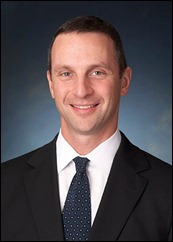


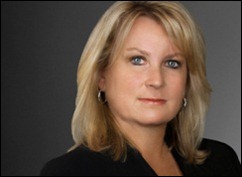



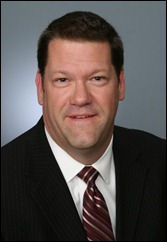
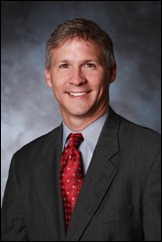

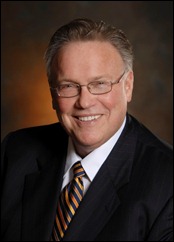
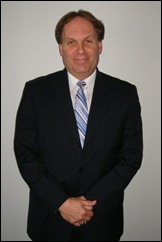


The AthenaHealth poll at Sermo showed that only 33% were fully expecting to earn the MU stimulus money for 2011. Unfortunately, this was an unscientific, nonrandom poll- the real numbers, if you include those that don’t even read EHR threads would be much less.
If you were to ask that same question today, after we learned that the bipartisan Obama panel has come out in favor of cutting physician Medicare fees further through 2015 and beyond would be even less- most likely back down to the 12/2009 CDC level of only 6% ready for those prepared to work to get the MU kickbacks.
I just don’t see how any physician would want to buy into a process that can cost up to $60000.00 a year in the ongoing bloated year-to-year EHR fees and in the costs, sweat, and loss of productivity associated with MU just to “possibly” qualify for a rebate-like yet unfinished “cash for clunkers” MU process? Those that are trying have got to be absolutely NUTS!
The only way that vendors can help physicians is to tell them: “Go away- save yourself and your small practice and don’t buy our product!”
Al
i agree with al if you are talking about software companies, but now that the cloud is here, docs should be able to expact that all this baloney should be taken care of by their vendors. At athena we ahve identified over 150 “MU-like” prgrams and are building out 27 of them right now in the backround. Our docs don’t even know we are doing it until we ask for the signature to enroll them.
Don’t give up Al, go to the could!
jb
But Jonathan-
Someone has to enter in the data in a manner that big government wants. Also, primary care doctors like myself would have to shell out 30-50% of my profits into the concept/religion of EHR+meaningful use. If you can do it in the background, then cudos to you and it may make me take a second look eventually.
I’ll wait at least 3 years, because:
1) Obama will be voted out by then and hopefully together with the 6 EHR vendor lobby contacts that surround him. I’m sure that you can rehire Todd Park again. Allscript’s Glen Tullman is still their CEO, so he’ll have a job, but he’ll sorely miss golfing with Obama!
2) MU will by then have its final rules in place. I can then determine whether or not to jump in. Unlike Congress, I do like to read legislation before acting on it.
3) This week I’ve learned that Medicare plans to slowly cut/bleed/decrease revenues to docs year-after-year through 2015. I’ve got to see what us docs have left then.
3) 3 years x $60000.00 cost per year means that I will be able to save a lot more money for my retirement. If EHR continues on its trainwreck speed, then I’ll simply retire from primary care and sell my office to a nurse practitioner or physician assistant. They’ll be the rage by then, as doctors will be as scarce as the dodos.
4) In 3 years I’ll be able to see if really you guys do stand behind your promises. Of course, even if you do, the onerous MU mandates would still be there… so what’s the point? You can put lipstick on a pig, but it’ll still smell. That’s what you’re trying to do, right?
5) In 3 years I will be able to see how my compadres trying to do MU have done… if they are still around.
I love the cloud- for email, Facebook, eBay, uploading my bills, and other stuff. I’m not sold on it for EMR, yet.
Cheers,
Al
Hello Al,
Just because a car can cost “up to” $2M, doesn’t mean that one cannot afford to buy a car, even a good gar. I think you know that you can get a decent EMR for much, much less than the exorbitant $60,000 per year. I believe you are using one 🙂
As to the vendors, if they really and truly want to help, either from earth or from the cloud, how about the vendor does not get paid unless the doc gets paid? P4P.
Whether the doctor failed to achieve Meaningful Use because a shortcoming of the software, or because it was too hard for him/her to do all “that stuff”, should be irrelevant. If the vendor thinks, or says, that their software is “easy to use”, requires almost no training and it does everything for you anyway, than why not take the ultimate leap of faith and agree to wait for the Government check?
Hi Margalit!
The thing is that the case for the EHR has not been made (at whatever cost). Over the years physicians have heard a lot of promises only to come out short at the end, and this includes promises by big government. Once someone is paid, then promises seem to disappear. As a disgruntled Catholic, I’ve learned to question everything, to not do any faith leaping, and to always “trust but verify.”
You mention my EMR. Yeah, yeah, I did write my own hybrid system based on MS Access, and it has a GREAT interface (ok- I’m a bit biased…). It does my chemotherapy, it does my PMS (including uploading billings through Excel to Office Ally seamlessly), and it handles much of my other paperwork. My ebay purchased $50 DNS “preferred” software works flawlessly with it since it doesn’t recognize my EMR as one of the 400 retail EMRs out there. Unfortunately, I now also have to learn GE Centricity since I’m on staff at one hospital, and I’ve also had to learn Siemen’s Sorian since I’m on staff at another hospital. Naturally none of them talk to each other. The expensive $14 million dollar Sorian interface sucks, and although GE is overall OK, it’s even more morbidly expensive (probably close to $50 million). They reside on hardware that includes computers that are 10-15 years old since I guess neither hospital can afford to upgrade their hardware.
Also on my mind is a neighboring nephrology group that tried to go EHR, but ended up losing their $2 million investment (about 3 years ago). One urology group with at least a dozen physicians will be breaking up due to EHR (just heard about it 2 days ago). The guy that I refer to is delighted- he got 2 of the partners. Looking at these multi-million dollar boondoggles doesn’t really inspire one to buy EHR. My neighbor uses eCW- he likes the fact that his tiny office doesn’t need to handle paper charts, but to date he’s far from enamoured by his EHR.
So for EHR to really be accepted by physicians:
1) The case needs to be made for EHR beginning with well run unbiased, prospective, randomized 2-3 arm studies showing that they decrease errors, increase quality, and decrease cost. They should use basic EMR and/or paper and/or “hybrid” systems as the placebo arm.
2) Get rid of P4P schemes and “MU” schemes altogether. It’ll eventually happen as doctors will ignore these programs with more vigor as time passes. There are things that just aren’t meant to be. I’ll personally cry out to Obama to “don’t touch my junk!” (meaning medical data through database mining, of course- http://www.youtube.com/watch?v=-UqM56e-kRA).
3) They have to decrease costs, improve interfaces, improve speed, and have EHRs intercommunicate. Paper records outshine the EHR in every one of these aspects. At least with paper we can intercommunicate through the FAX, no? The fax slides right into the paper folder. Nice.
4) They should taper the lofty idea of CCHIT/ONC/eRx-like standards, which does tend to stifle innovation and decrease competition among EHR/EMR systems. The certifying agencies should certify quickly and for free to help vendors keep costs down. The only 3 “standards” that should be in place are- does it intercommunicate with other systems? are vendor promises accurate? is the EULA fair to the buyer?
As the HIT industry goes through the pain of stagnation that we’ll see over the next few years, this wish list will eventually come to fruition. Doctors want all 4 things to occur- nothing less.
Al